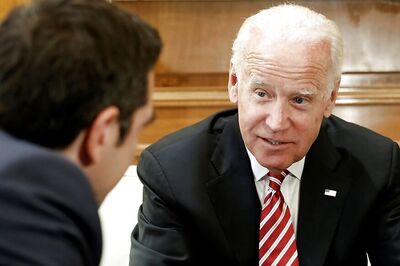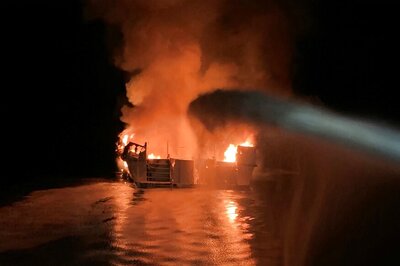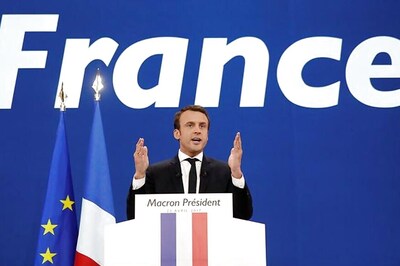
views
Washington: Brett Kavanaugh, tapped by Donald Trump to fill a crucial Supreme Court vacancy, is a robust supporter of the executive power of the presidency, and a jurist who has demonstrated his staunch conservative credentials on multiple occasions.
As a judge of the US Court of Appeals in Washington for the past 11 years, Kavanaugh has ruled and written on some of the nation's most sensitive cases, including when he opposed the Affordable Care Act, the signature health reform of Trump's Democratic predecessor Barack Obama.
"There is no one in America more qualified for this position and no one more deserving," Trump said in announcing his nomination at the White House, urging the Senate to swiftly confirm his nominee.
Kavanaugh began his career as a clerk to Anthony Kennedy, the justice long considered a critical swing vote on the Supreme Court, and will succeed him on the bench when he retires at the end of the month.
"Justice Kennedy devoted his career to securing liberty. I am deeply honored to be nominated to fill his seat on the Supreme Court," the 53-year-old Kavanaugh said as Trump announced his nomination at the White House.
"My judicial philosophy is straightforward. A judge must be independent and must interpret the law, not make the law," he said.
A Yale University graduate, in the 1990s he led an investigation into the suicide of Bill Clinton aide Vince Foster, who was linked to the Whitewater controversy that began as a probe into the presidential couple's real estate investments.
Kavanaugh later contributed to prosecutor Kenneth Starr's report into Clinton's affair with White House intern Monica Lewinsky, and which outlined several grounds for Clinton's impeachment.
Later he was part of George Bush's legal team in working on the 2000 Florida recount, which resulted in Bush winning the presidency.
- Ammunition for opponents -
After Bush moved into the White House in 2001, he recruited Kavanaugh as legal counsel before later naming him to the appellate court in 2003.
But Kavanaugh's nomination languished for three years, as Democrats fumed over his participation in Bush's recount team. He was eventually confirmed in 2006.
In 2012, Kavanaugh was part of a panel that scrapped an Environmental Protection Agency measure aimed at reducing air pollution in the United States.
He recently voiced disagreement with a court decision allowing a teenage unauthorized immigrant to get an abortion.
A practicing Catholic active in various religious organizations, Kavanaugh is a married father of two girls.
Some Republicans have expressed concern that Kavanaugh's extensive record on various critical cases could give ammunition for opponents to delay the confirmation process or scuttle the nomination.
Lawyers who have argued cases in front of Kavanaugh recalled him as an active questioner from the bench, and a very well prepared jurist who would fit in on a Supreme Court whose justices are largely not shy in oral arguments with advocates.
While Kavanaugh's record has antagonized conservatives at times, his position on executive authority may have endeared himself to Trump.
With the president facing a sweeping investigation by Special Counsel Robert Mueller, it may have appealed to him to nominate a justice who has argued that the commander in chief should be left alone while in office.
In the Minnesota Law Review, Kavanaugh argued that while the nation requires a check against "a bad-behaving or law-breaking president," that check is provided only by the US Constitution.
"If the President does something dastardly, the impeachment process is available," Kavanaugh wrote. "No single prosecutor, judge, or jury should be able to accomplish what the Constitution assigns to the Congress."




















Comments
0 comment